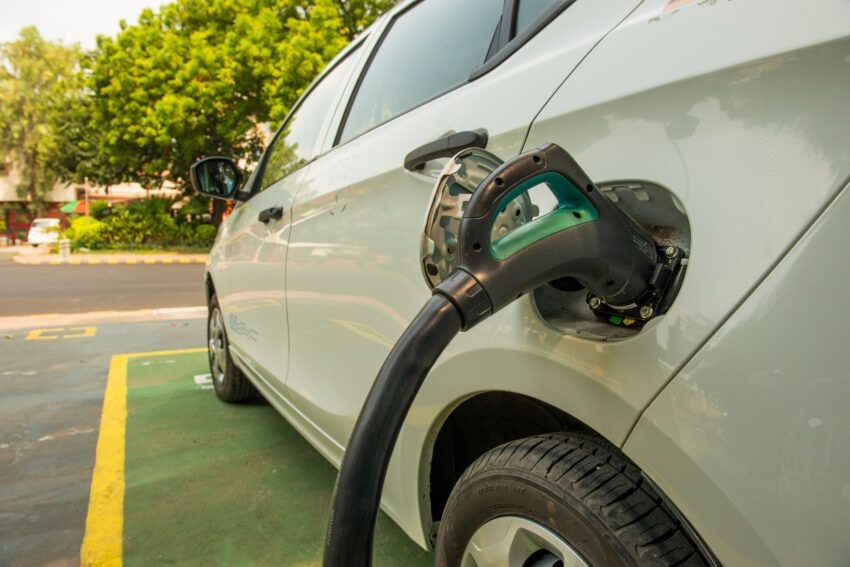A Buyer’s Guide to Used Electric Vehicles
The allure of electric vehicles (EVs) has surged across the UK, not just as a trend but as a sustainable choice for the environmentally conscious and cost-savvy consumer. Among these, used EVs have emerged as a particularly appealing option, offering a blend of environmental responsibility and financial accessibility.
In this guide, we delve into the world of used electric vehicles, exploring their increasing popularity and their unique benefits. From the significant cost savings, compounded by choosing to lease your used EV through a salary sacrifice scheme, to the reduced environmental impact compared to their brand-new counterparts, used EVs represent a practical and eco-friendly path to joining the electric revolution.
Why Used EVs?
Choosing a used EV isn’t merely a matter of budget; it’s a conscious choice towards a more sustainable lifestyle. Environmentally, used EVs stand out as they circumvent the substantial carbon footprint of manufacturing new vehicles. By extending the life of existing EVs, buyers contribute to reducing overall emissions.
Financially, the benefits are equally compelling. Used EVs often come at a significantly lower price point compared to their new counterparts without compromising on the technological advancements that define modern EVs. This cost-effectiveness extends beyond the purchase price, with used EVs typically boasting lower running and maintenance costs than traditional combustion-engine vehicles.
Moreover, the reliability and performance of modern used EVs are noteworthy. Advances in battery technology and EV design mean that even older models retain high efficiency and range, challenging the misconception that used equals compromised quality.
Accessing the Used EV Market
Navigating the used EV market can initially seem daunting, but it offers a wealth of options for the discerning buyer. The first step is knowing where to look. Traditional car dealerships have increasingly embraced the EV revolution, often featuring a range of used EVs. These dealerships provide the advantage of seeing and test-driving the vehicle before purchase.
Online platforms and specialised EV websites have also emerged as invaluable resources, offering extensive listings of various electric vehicles, including electric PCO cars. They offer extensive listings, detailed vehicle information, and sometimes even virtual viewing options. These digital marketplaces are convenient for comparing models, prices, and features from the comfort of one’s home.
Additionally, EV-specific forums and social media groups can be hidden gems for potential buyers. They offer real-world insights, personal selling posts, and a community of EV enthusiasts sharing their experiences and advice. While these sources vary in services and reach, they collectively represent the diverse landscape of the used EV market.
What to Look for in a Used EV
Certain factors are pivotal in ensuring a wise purchase when venturing into the used electric vehicle (EV) market. Firstly, the battery health stands paramount. Unlike conventional cars, the battery in an EV is its most crucial component. Prospective buyers should seek detailed reports on battery performance and health, as these directly impact the vehicle’s range and efficiency.
Mileage, while less critical in EVs than in petrol or diesel cars, still offers insights into the vehicle’s usage. Model year can also influence your decision, as it often correlates with technological updates and features. Additionally, understanding the warranty options for a used EV is essential, providing peace of mind regarding future maintenance and repairs.
Always verify that the seller provides genuine images of the actual car, not just stock photos, and comprehensive vehicle history and performance records. These documents are indispensable in assessing the car’s condition and ensuring transparency in your purchase.
Financial Considerations
When choosing a used electric vehicle (EV), the financial considerations extend beyond the purchase price. While EVs benefit from marginally lower depreciation rates compared to internal combustion engine (ICE) vehicles, the significant advantages lie in their operational and maintenance efficiencies. Operating on electricity, EVs are markedly cheaper to ‘fuel’ than their petrol or diesel counterparts. Additionally, the simplicity of their design – with fewer moving parts and less wear and tear – typically translates into lower maintenance costs, making them more economical over their lifespan.
Salary sacrifice schemes introduce another layer of financial benefit, especially for used EVs. These schemes, an increasingly popular method for acquiring vehicles, offer pre-tax savings, effectively reducing the gross cost of the car. When applied to used EVs, the savings are even more substantial. For example, let’s look at the popular Tesla Model 3. By leasing a used Model 3 through salary sacrifice, a driver could save an additional 45% through reduced tax and National Insurance Contributions on top of the lower initial price by choosing used over new.
Embracing a Greener Future: The Compelling Case for Used EVs
Choosing a used electric vehicle offers a blend of affordability, accessibility, and sustainability. With lower depreciation, reduced running costs, and the option for further savings through salary sacrifice schemes, used EVs present a financially savvy and environmentally friendly choice, making the transition to electric driving more attainable than ever.
